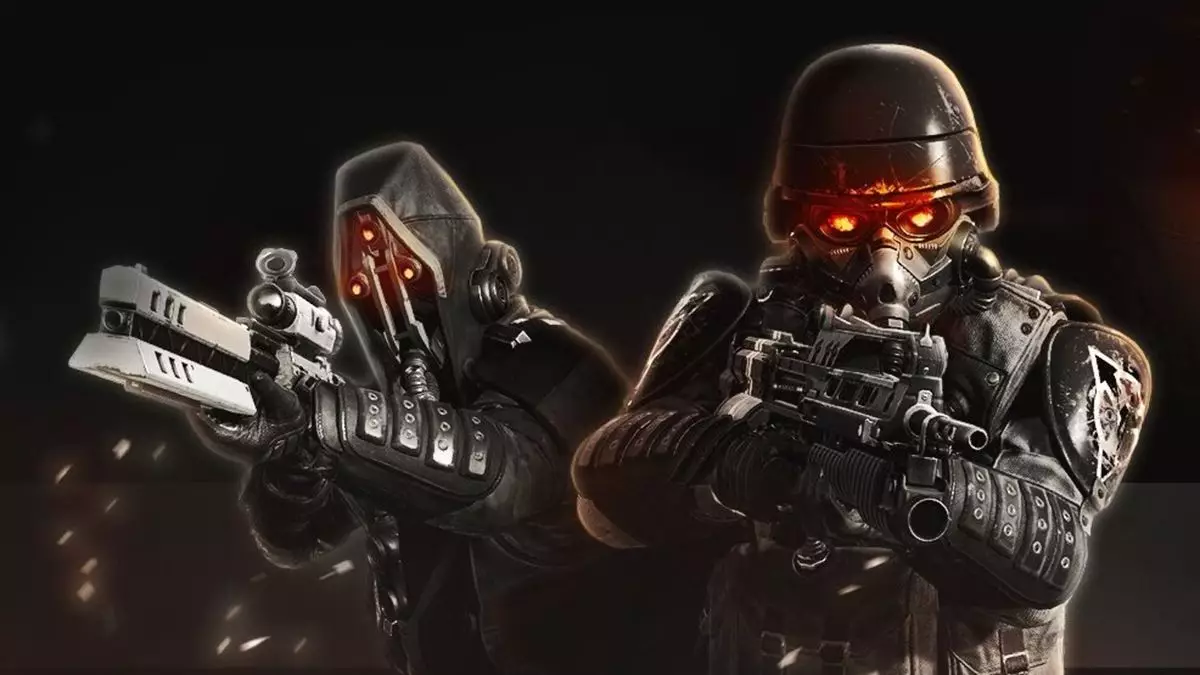The gaming landscape has become increasingly crowded with live-service games, and as developers try to carve out their niche, they must navigate the delicate balance between monetization and player satisfaction. Arrowhead Game Studios, known for its cooperative shooter Helldivers 2, has recently faced significant backlash over its first major crossover: a tie-in with the Killzone franchise. This collaboration, featuring cosmetic skins inspired by the Helghast faction, has stirred a flurry of responses from the game’s community, predominantly concerned with the high price point attached to these cosmetics. Arrowhead’s CEO, Shams Jorjani, took to Discord to address the concerns raised, which provides an insight into the challenges faced by developers in this new era of gaming.
Helldivers 2’s collaboration with Killzone represents an exciting opportunity for both franchises. The skins, weapons, and gear are designed to attract fans of the Killzone universe while enhancing the aesthetics and engagement of Helldivers 2. However, the primary intention behind such collaborations often lies in revenue generation, and when the price becomes a sticking point, the unique value of the crossover can get overshadowed. The pricing strategy, while not uncommon in the industry, raises questions about whether the game’s developers fully anticipated the community’s reaction or if they felt compelled to follow market trends that prioritize profit over player investment.
Community Backlash: A Sign of Discontent
Reaction from the Helldivers 2 player base has been overwhelmingly critical, with many expressing frustration at the prices set for the new skins and items. At the core of this backlash is a feeling of disconnect between the developers and the community. Players are not just upset about spending money but resentful of what appears to be a disregard for their loyalty. The sheer cost of the promotional items raises an alarm about the prioritization of premium pricing over the engagement and satisfaction of longtime fans. It puts into stark relief the idea that while developers need to monetize their games, they must do so in a way that resonates with their audience instead of alienating them.
Leadership Response: Navigating the Storm
Facing mounting criticism, Jorjani attempted damage control in public forums, signaling to players that the studio is keen on receiving constructive feedback. The contradiction between Arrowhead’s desire to cultivate goodwill within the community and the evident failure to strike the right pricing balance spawned an ongoing dialogue. Such transparency shows that while mistakes were made, there is a willingness to adapt. Jorjani indicated that modifications may come based on sales data, usage patterns, and direct community feedback. Yet, this commitment raises an important philosophical inquiry: how much should developers bend to the will of the community, especially when navigated by data-driven decision-making?
While the first crossover hit some sour notes, it also paves the way for learning and improvement. The game is set to transition into a second phase of the collaboration, hinting at a potential rethink influenced by community input. Arrowhead’s admission that steering a live-service title is challenging reflects the reality of a shifting gaming era, where long-held conventions are upended by demands for continuous online engagement and monetization. However, Jorjani’s comments about striving for a balance between affordability and desirability show promise for future endeavors. The challenge lies in how the development team will apply lessons learned from this initial backlash to future updates and crossovers.
Arrowhead Game Studios stands at a crossroads following the controversial launch of its Killzone crossover. While they have publicly acknowledged their misstep regarding pricing strategies, the road ahead is fraught with obstacles that require careful navigation. Fostering an environment where monetization does not come at the cost of community trust is essential for any live-service game. Developers must recognize that long-term success hinges on collaboration with their players, valuing their insights rather than viewing them as obstacles. The lesson learned from the Helldivers 2 experience may well influence Arrowhead’s approach to future projects, compelling them to prioritize community engagement alongside innovative monetization strategies.


Leave a Reply